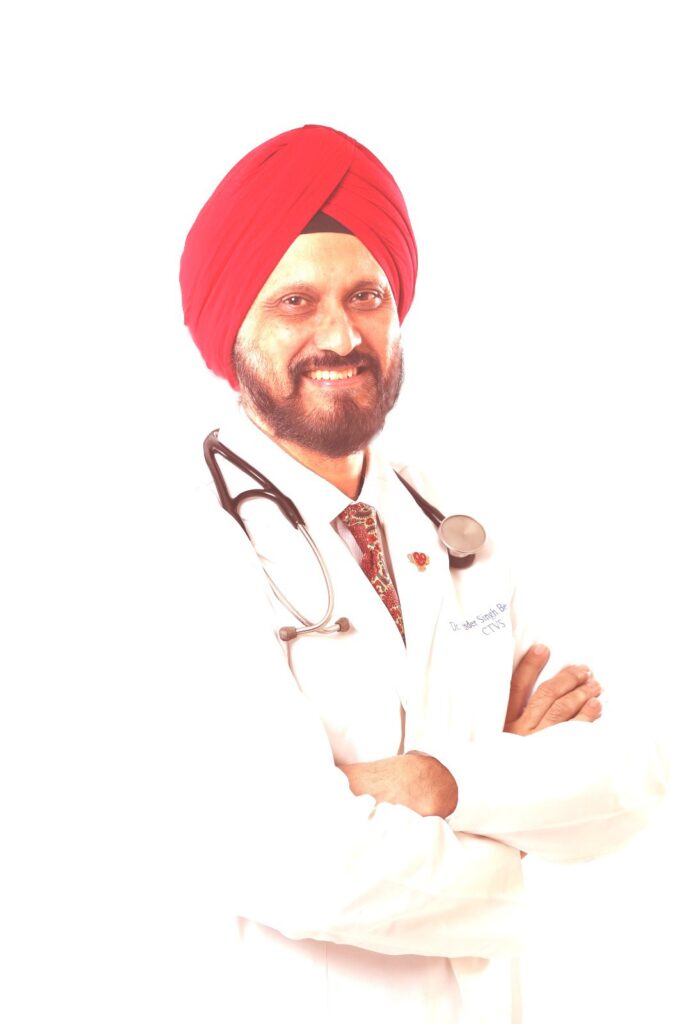
Dr BEDI
The increasing number of heart attacks among young men engaged in intensive gym workouts has raised serious public health concerns. The sudden death of noted South Indian actor Punith Rajkumar in the past and in the recent past the passing away of a body builder in Punjab, who suffered a fatal cardiac arrest in his early forties despite being perceived as physically fit, has drawn renewed attention to the issue.
Health experts note that the trend is not confined to celebrities. Across metropolitan cities and smaller towns alike, multiple cases of cardiac emergencies are being reported among individuals aged between 25 and 45 who follow high-intensity fitness routines.
Cardiologists caution against equating muscular build with overall health. A significant number of young men today focus on body sculpting—particularly arms, chest, and shoulders—while paying inadequate attention to cardiovascular endurance.
“It is a well known fact that male bodybuilder athletes have a 5 times higher risk of heart attack . This is due to multiple factors . Such athletes can have a heart disorder called cardiomyopathy which predisposes to sudden cardiac death (SCD) . This can be easily picked up by a simple test called a cardiac echo,” explains Dr Harinder Singh Bedi, an eminent cardiac surgeon and Director, Cardiovascular Sciences at the Park Grecian Hospital, Mohali(Punjab).
“Appearance can be deceptive,” Dr Bedi clarifies. “Many of these individuals do not undergo periodic screenings, and latent cardiac vulnerabilities go undetected,” he explains matter-of-factly.
Medical professionals attribute a considerable portion of these incidents to overexertion. High-intensity weight training, inadequate rest, and lack of structured supervision exert sudden pressure on the heart. Improper breathing techniques during heavy lifts are known to trigger spikes in blood pressure, increasing the likelihood of cardiac events.
Gym trainers also acknowledge that several young clients aim for quick muscle gain and ignore gradual conditioning, warm-ups, and recovery periods.
A parallel concern relates to the increasing consumption of performance-enhancing substances. Protein powders, anabolic steroids and pre-workout stimulants, often sourced without medical consultation, are being widely used to accelerate physical transformation.
Dr. Bedi warns that these substances can cause cardiac hypertrophy, raise cholesterol levels, and impair liver function. Dr Bedi further explains that athletes in competitions are sometimes given anabolic steroids and protein supplements which catch them unawares by damaging the heart and kidneys . In International competitions the athlete sometimes intentionally dehydrates to maintain a specified body weight – this makes the blood thicker and predisposes to a heart attack due to a clot . Intense bursts of exercise can unduly put a major stress on the heart . While recalling an incident when a former Mr Punjab came to see him at his hospital, Dr Bedi says that he had developed heart disease due to a combination of abovementioned factors ; Dr Bedi performed a successful bypass surgery to cure him of his illness.
The absence of regulatory oversight in the supplement market has compounded the risks.
Stressful work schedules, inadequate sleep, smoking, alcohol intake, and poor dietary habits are further undermining heart health among the youth. Physicians argue that intensive workouts performed against the backdrop of such lifestyle factors increase the chances of cardiac failure.
Health practitioners underscore the lack of pre-exercise medical evaluations. Tests such as ECGs, lipid profiles, and stress assessments are seldom considered necessary by young adults unless symptoms surface.
Consequently, conditions such as coronary artery disease, arrhythmias and congenital defects remain undiagnosed until a crisis occurs.
Fatigue, chest tightness, breathlessness and palpitations are common early indicators but are frequently dismissed as after-effects of exercise. Specialists caution that timely medical intervention could prevent a large number of such fatalities.
As suggestive measures, Dr Bedi advises that it is important to have regular heart checkups, a graded exercise plan under a qualified coach, a prudent low fat zero deep fried diet and avoidance of any drug or artificial supplements to rule out the possible risks of heart attack in our bodybuilder athletes .
To address the rising incidence, experts recommend a set of precautionary measures:
1).Integration of aerobic exercise with strength training
2).Periodic health screening, especially for those pursuing high-intensity regimens
3).Avoidance of steroids and unregulated supplements
4).Structured supervision by certified trainers
5).Awareness of symptoms and timely medical consultation. Attention to diet, rest and stress management
Public health authorities and medical practitioners stress the need for regulating fitness centres and the supplement industry. They argue that the current trend calls for greater awareness among youth and proactive policy intervention.
The fatalities among otherwise active and seemingly healthy individuals underscore a critical message: cardiovascular resilience must be prioritised alongside physical appearance. Without preventive care and informed exercise practices, the pursuit of fitness risks becoming counterproductive.
(Dr Bedi can be contacted at 9814060480 or heartvessels911@gmail.com)


